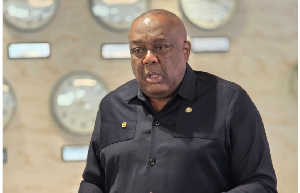By Abubakar Mohammed Marzuq Azindoo, Coordinator of Students and University Relations, University of Applied Management (UAM), Germany – Ghana Campus, McCarthy Hill, Accra and Tamale
Email: azindoo200@gmail.com Tell: 0244755402
Since the dawn of university education in the Twelfth Century, structured learning has played a tremendous role in the progress of humanity. However, challenges of contemporary society suggest that the curriculum-based education is not enough to guarantee the intellectual and social advancement of mankind. For instance, many curricula of many programs at many universities in many countries in Africa are not adequate to provoke the desired level of critical thinking among the youth and to promote socio-industrial development of the continent. The alarming gap between the Industry and Academia vividly explains this observation.
The situation has become so serious that even fields of Applied Linguistics run by some of these universities fail to yield expected results. As an illustration, it is not surprising to see a level 300 or 400 Journalism Major student, who cannot differentiate a NEWS STORY from a FEATURE ARTICLE, an EDITORIAL from an ADVERT COPY, a CAPTION from a BANNER HEADLINE. This is, indeed, a pathetic situation!
It is, therefore, necessary to promote debate and other intellectually stimulating extra-curricular activities to boost the creative abilities of the youth. Besides, debate, as a form of public speaking, is essential in many areas of national and international affairs – national governance, global security, and international diplomacy.
Surely, democratic governance is now the order of the day on the African continent. Tutored student debaters can be groomed to become responsible parliamentarians and active participants in national discourse on the airwaves. This can enhance the quality of parliamentary debate, consolidate constitutional democracy, and sanitize the polarized airwaves in most countries on the continent.
Largely, Alternative Dispute Resolution (ADR) is another growing phenomenon to help maintain a peaceful order and to minimize threats to national security in most parts of the African continent. Student debaters could be trained to become resource base for the employment-generating phenomenon.
Moreover, the Bar and the Bench are critical players in governance in all civilized societies. Through technical assistance and advocacy they help entrench constitutional order in all African countries governed by the rule of law. Guided student debaters and adjudicators could constitute a fertile ground to generate future competent lawyers and judges.
Furthermore, debate, as a game of intellectualism, inculcates in the youth a sense of tolerance, perseverance, logic, diplomacy, and respect for divergent opinions. These are values relevant to good governance, societal order, and national development.
Today, the concept of sovereignty gradually yields to that of globalization. While Africa might not be ripe for a united state, integration remains dear to African Union (AU), Economic Community of West African States (ECOWAS), and other sub-regional bodies on the continent. Debate is a strong tool for the realization of this noble objective.
It is for the above reasons that I call on the authorities of public and private universities on the African continent to consider, as part of their program expansion, novelties in Public Speaking and Creative Writing. Debating, Fictional Writing, Political Communication and Campaign Design on a wide range of societal issues are suggested areas of specialization.
As much as possible, these programs should be practical. Supervised writing portfolios and debate encounters might constitute end-of-semester examinations. This way, the students’ quality of reasoning and ability of language usage could form examinable areas – areas of assessment and evaluation. All efforts must be made to ensure quality, but the programs should depart from the traditional approach in terms of teaching methodology, assessment, and evaluation.
Pan African Writers Association, (PAWA) Debate Ghana Association (DGA), Ghana Universities Debate Association (GUDA), Ghana Journalists’ Association (GJA), Editors’ Forum Ghana (EFG), and other literary organizations could be contacted to offer technical assistance in running the proposed programs.
Long Live youth intellectualism, Long Live Tertiary Debating, Long Live Mother Ghana, Long live Mother Africa.
NOTE: Dedicated to the Federal Republic of Nigeria for the just ended historic elections justifying her commitment to democratic governance
Opinions of Saturday, 11 April 2015
Columnist: Azindoo, Abubakar Mohammed Marzuq














